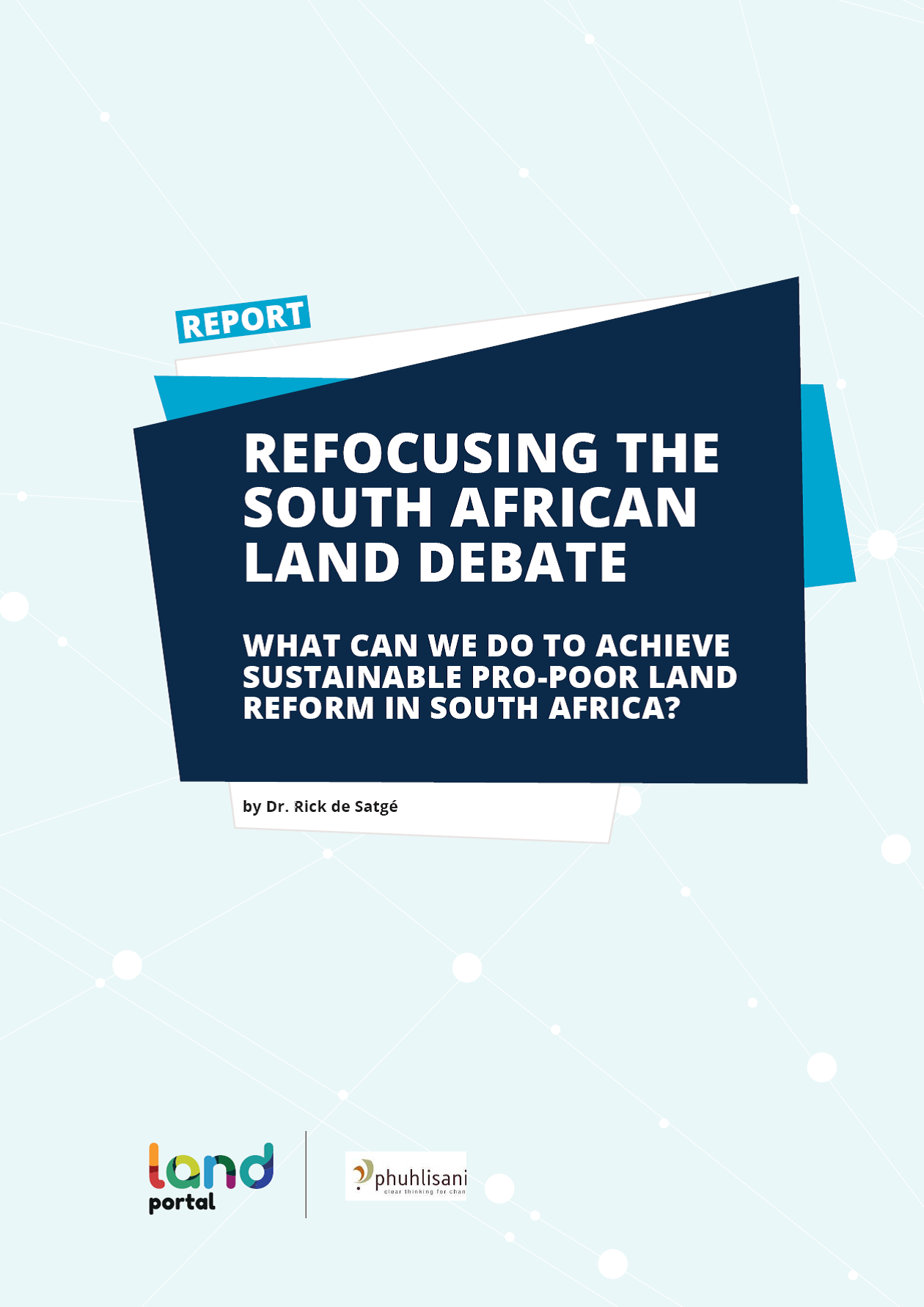Refocusing the South African Land Debate
What can we do to achieve sustainable pro-poor land reform in South Africa?
Resource information
Date of publication
Noviembre 2018
Resource Language
Pages
12
License of the resource
This moderated online dialogue was facilitated by Phuhlisani NPC in association with the Land Portal. Phuhlisani NPC has drafted this report on the key issues surfaced through the dialogue.
Dialogue objectives
The dialogue provided an online forum to explore different perspectives on the content of a pro-poor programme of land reform programme that can:
- Actively promote equitable access to land in rural and urban areas to tackle spatial and economic inequality;
- Provide tenure security for 60% of South African citizens whose property rights remain off-register;
- Grow and support small producers and contribute positively to the livelihood security of marginalised rural and urban South Africans; and
- Address the current shortcomings affecting existing restitution, redistribution and tenure reform programmes.
Dialogue format
The ten questions below provided the overall framework for the online dialogue.
- What is land reform for?
- How exactly can access to land support the livelihoods and wellbeing of poor people in South Africa?
- What has been relationship between the costs and benefits of land reform to date?
- What has worked with land reform in South Africa: where and why?
- What needs to be done to get closure on land restitution and accelerate rural land redistribution?
- How can we improve access of the urban poor to well located land in the city and tackle the effects of spatial inequality?
- What can be done to secure the land rights of an estimated 60% of South Africans whose land rights remain off register in rural and urban areas?
- How do we deal with the politicisation of land reform, and its connection with the national and the colonial questions?
- How do we obtain reliable open data to better understand who owns what and monitor the performance of the land reform programme?
- What should be the key elements shaping land policy and a land reform framework law to ensure that land reform benefits poor South Africans and does not become a vehicle for elite capture?


